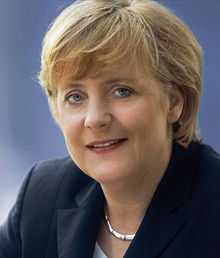Germany's Merkel can help Moldovan president with Trans-Dniester conflict
German Chancellor Angela Merkel said Monday she explored with Moldova 's president ways in which the European Union could help his country resolve the conflict over its breakaway Trans-Dniester region. Russian-backed Trans-Dniester has run its own affairs without international recognition since breaking away from Moldova in a 1992 war.

The Moldovan government and Trans-Dniester have held on-again, off-again talks on the region's status, and a Russian-mediated settlement collapsed several years ago. Moldova has looked increasingly westward, and its ties with Moscow have soured. Russia has maintained a 1,800-strong military presence in Trans-Dniester despite what Moldova and NATO say were pledges of a pullout by 2003.
Earlier this month, EU foreign policy chief Javier Solana said the trade bloc was committed to help in so-called "frozen conflicts" in the Black Sea region, including Trans-Dniester. Merkel said she had an "interesting" discussion with Moldovan President Vladimir Voronin "about the Trans-Dniester situation and how the European Union can help with a solution."
"And I made it clear in the talks with the president that it is in Germany's interests that the Trans-Dniester conflict can be solved, because that is also the prerequisite for us to move fully ahead with economic development," Merkel said. Voronin said the talks "about a solution to the Trans-Dniester conflict" were "very open and very cordial" but did not elaborate. Neither leader took questions, reports the AP.
N.U.
Subscribe to Pravda.Ru Telegram channel, Facebook, RSS!





